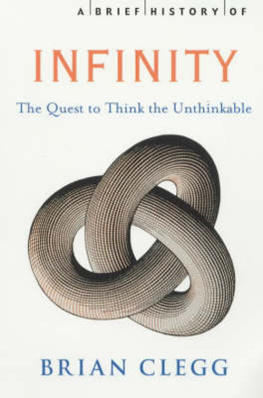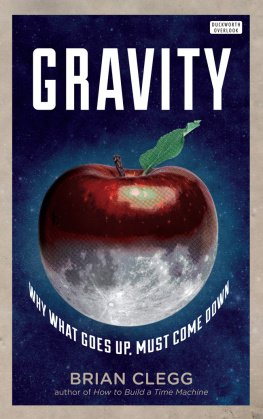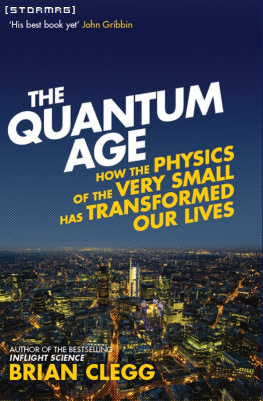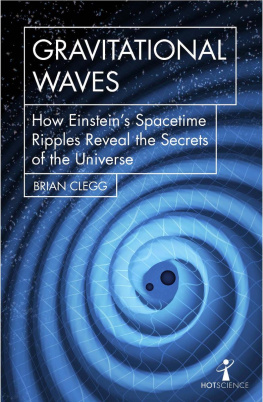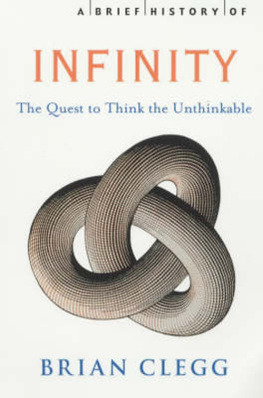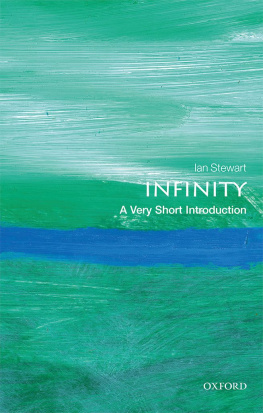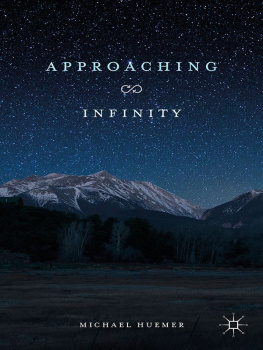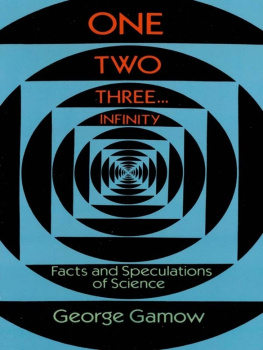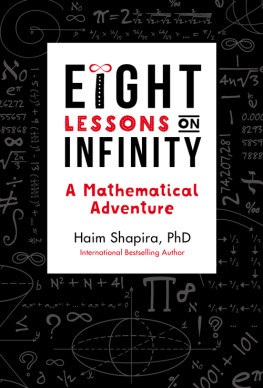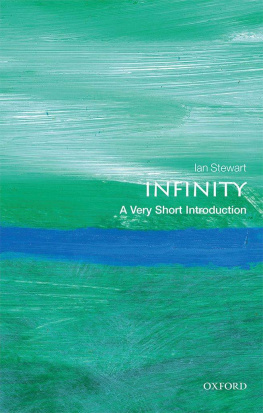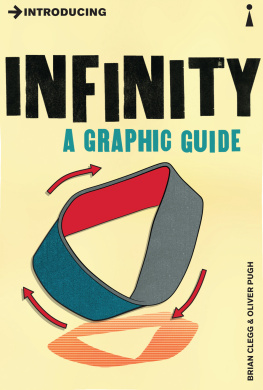BRIAN CLEGG is the author of the highly acclaimed Light Years and The First Scientist (published by Constable, 2002). While working for British Airways he set up the Emerging Technologies Group, responsible for researching cutting-edge technologies. He currently runs his own creative consultancy business.
Praise for Light Years
In this extraordinary book ... Cleggs accessible writing style manages to encapsulate the lives of lights disciples with humorous and interesting anecdotes ... quite awesome.
New Scientist
A fascinating book on a fascinating subject.
Sir Patrick Moore CBE
Praise for The First Scientist
This is both a fascinating biography and a vivid picture of the mediaeval world in which advances were made and controversies flourished.
Publishing News
Cleggs book strikes a good balance between what is known about Bacons life and what is interesting about his work.
Financial Times
Clegg does well to ... present Bacon as the great intellectual he was.
Benjamin Woolley, Guardian
Other titles in this series
A Brief History of the Boxer Rebellion
Diana Preston
A Brief History of British Kings & Queens
Mike Ashley
A Brief History of the Celts
Peter Berresford Ellis
A Brief History of the Circumnavigators
Derek Wilson
A Brief History of Christianity
Bamber Gascoigne
A Brief History of the Druids
Peter Berresford Ellis
A Brief History of the Dynasties of China
Bamber Gascoigne
A Brief History of Fighting Ships
David Davies
A Brief History of the Great Modhuls
Bamber Gascoigne
A Brief History of the Hundred Years War
Desmond Seward
A Brief History of Napoleon in Russia
Alan Palmer
A Brief History of the Royal Flying Corps in WW1
Ralph Barker
A Brief History of Science
Thomas Crump
A Brief History of the Tudor Age
Jasper Ridley
A BRIEF HISTORY OF
INFINITY
The Quest to Think the Unthinkable
Brian Clegg
ROBINSON
London
Constable & Robinson Ltd
5556 Russell Square
London WC1B 4HP
www.constablerobinson.com
First published in the UK by Robinson,
an imprint of Constable & Robinson Ltd, 2003
Copyright Brian Clegg 2003
The right of Brian Clegg to be identified as the author of this work has been asserted by him in accordance with the Copyright, Designs and Patents Act 1988
All rights reserved. This book is sold subject to the condition that it shall not, by way of trade or otherwise, be lent, re-sold, hired out or otherwise circulated in any form of binding or cover other than that in which it is published and without a similar condition including this condition being imposed on the subsequent purchaser.
A copy of the British Library Cataloguing in Publication data
is available from the British Library
ISBN 978-1-84119-650-3
eISBN 978-1-47210-764-0
Printed and bound in the EU
10 9
To Gillian, Rebecca and Chelsea, and also to Neil Sheldon at the Manchester Grammar School for having patience over the matter of frogs and lily-pads.
CONTENTS
ACKNOWLEDGEMENTS
Many thanks to all those who provided information and assistance in putting this book together including the staff at Swindon Central Library and the British Library, Forrest Chan of LiPACE (Open University of Hong Kong), Professor David Fowler of the University of Warwick, Dr Jeremy Gray of the Open University, Professor Dale Jacquette of The Pennsylvania State University, Professor Eberhard Knobloch of the Institut fr Philosophie in Berlin, Professor Shaughan Lavine of the University of Arizona, Professor Rudy Rucker of San Jose State University, Peggy Brusseau and James Yolkowski.
Thanks also to my agent, Peter Cox, in his consistent efforts to encourage publishers that finance and the infinite are not incompatible, and to all those who have been involved at Constable & Robinson, particularly Jan Chamier and Pete Duncan.
1
TO INFINITY AND BEYOND
In this unbelievable universe in which we live there are no absolutes. Even parallel lines, reaching into infinity, meet somewhere yonder.
Pearl S. Buck, A Bridge for Passing
THE INFINITE IS A CONCEPT SO REMARKABLE, so strange, that contemplating it has driven at least two great mathematicians over the edge into insanity.
In the Hitch-hikers Guide to the Galaxy, Douglas Adams described how the writers of his imaginary guidebook got carried away in devising its introduction:
Space, it says, is big. Really big. You just wont believe how vastly, hugely, mind-bogglingly big it is. I mean, you may think its a long way down the street to the chemist, but thats just peanuts to space. Listen ... and so on. After a while the style settles down a bit and it starts telling you things you actually need to know ...
Infinity makes space seem small.
Yet this apparently unmanageable concept is also with us every day. My daughters were no older than six when they first began to count quicker and quicker, ending with a blur of words and a triumphant cry of infinity! And though infinity may in truth make space seem small, when we try to think of something as vast as the universe, infinite is about the best label our minds can apply.
Anyone who has broken through the bounds of basic mathematics will have found the little symbol creeping into their work (though we will discover that this drunken number eight that has fallen into the gutter is not the real infinity, but a ghostly impostor). Physicists, with a carelessness that would make any mathematician wince, are cavalier with the concept. When I was studying physics in my last years at school, a common saying was the toast rack is at infinity. This referred to a nearby building, part of Manchester Catering College, built in the shape of a giant toast rack. (The resemblance is intentional, a rare example of humour in architecture. The companion building across the road, when seen from the air, looks like a fried egg.) We used the bricks on this imaginative structure to focus optical instruments. What we really meant by infinity was that the building was far enough away to pretend that it is infinitely distant.
Infinity fascinates because it gives us the opportunity to think beyond our everyday concerns, beyond everything to something more as a subject it is quite literally mind-stretching. As soon as infinity enters the stage, it seems as if common sense leaves. Here is a quantity that turns arithmetic on its head, making it seem entirely feasible that 1 = 0. Here is a quantity that enables us to cram as many extra guests as we like into an already full hotel. Most bizarrely of all, it is quite easy to show that there must be something that is bigger than infinity which surely should be the biggest thing there could possibly be.
Although there is no science more abstract than mathematics, when it comes to infinity, it has proved hard to keep spiritual considerations out of the equation. When human beings contemplate the infinite, it is almost impossible to avoid things theological, whether in an attempt to disprove or prove the existence of something more, something greater than the physical universe. Infinity has this strange ability to be many things at once. It is both practical and mysterious. Scientists and engineers use it quite happily because it works but they consider it a black box, having the same relationship with it that most of us do with a computer or a mobile phone, something that does the job even though we dont quite understand how.
Next page
